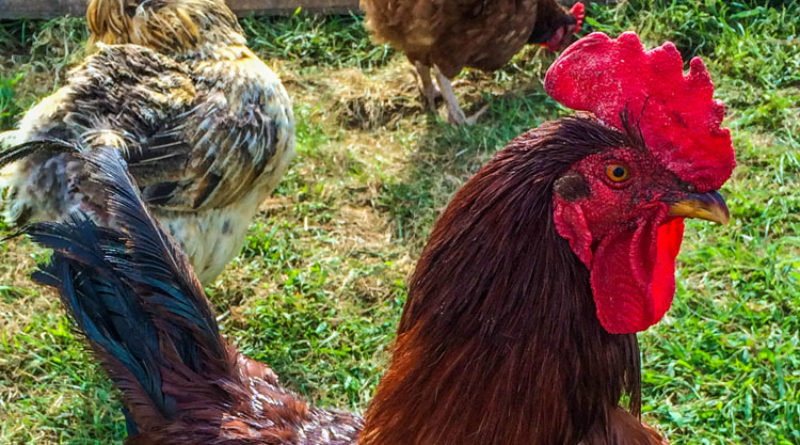Hen bylaw concerns raised
By John Watson Local Journalism Initiative Reporter
The Town of Strathmore is moving forward with the establishment of an urban hen bylaw, as second reading was carried at the May 4 regular council meeting.
Town administration was directed to draft the bylaw in October 2021 and it was initially brought forward during the Committee of the Whole meeting on April 20.
Councillor Denise Peterson raised concerns about the potential impacts of avian flu on any domestic chickens’ residents may house.
Jodi Koester, a local veterinarian, confirmed that there is a risk of avian flu spreading, as Alberta has been experiencing a highly pathogenic avian flu this season which is killing many migratory raptors and fowl. As there is currently spread of the flu from wildlife to domestic animals currently being observed, she advised council to use caution in passing the bylaw or starting it at this time.
“It would be like saying (to) have a party in the middle of the COVID-19 pandemic. You would be introducing a bunch of poultry during a time that is very high risk that they could get sick and die,” said Koester suggesting to either table the discussion for the time being until risk levels decline or pass the bylaw and delay license approvals until the outbreak is passed.
Koester did add that the potential jump of the avian flu from fowl to humans is unlikely but possible, and that complete separation from any contact with other fowl passing through a property would prevent the spread of the flu.
Migration season ends roughly in June, at which time, Koester indicated the risk of avian flu spreading would decrease significantly.
During the discussion, councillor Melissa Langmaid questioned both the purpose of limiting the number of hens a resident may keep to a maximum of four and the purpose of omitting an allowance for hatching chicks domestically.
“You have to register each hen with a PID and so they are traceable back to your property. If somebody is going to incubate, how do you control that? How do you control that they are being registered,” said Claudette Thorhaug, who presented the drafted bylaw to council, adding that allowing incubation would convolute the bylaw and that 16-week-old hens are much more likely to succeed than newly hatched chicks.
Municipalities who have established similar urban hen bylaws have not permitted incubation and hatching of chicks within a domestic environment.
First reading of the drafted bylaw passed without amendment or further discussion.
A debate regarding implementation of potential amendments, as well as questions being raised regarding the necessity for applicants to notify their neighbours of their intent to keep domestic hens, concluded with Montgomery putting forward a motion to withdraw his previous motion for second reading.
The former was defeated 4-3 by council and second reading proceeded. During this reading, Montgomery proposed three amendments to the bylaw for consideration.
The first being a motion to add a line to the license application form on which an applicant would confirm that their neighbours had been notified of their intent to keep domestic poultry and that they have been unable to receive a signature.
“If we are going to have something that says we have to notify the neighbour, getting them to sign off on it, we should have some sort of loophole for, say, a case where a neighbour refuses to sign,” said Montgomery who suggested that then the onus should be on the Town to send out notifications to the neighbours of an applicant, treating the process similar to how development permits are handled.
The motion to amend the bylaw was passed 4-3.
Montgomery’s next concern was regarding the Town’s ability to assemble an appeal committee comprised of a lawyer with expertise in administrative law, or a person with experience or acting as a member of a quasi-judicial tribunal, a licensed and practising veterinarian, as well as a licensed and practising physician.
He motioned to instead amend the bylaw to state the appeal committee may be compromised of members of the public appointed appropriately by administration who are not affiliated with the town. The motion was passed.
Montgomery’s final motion was presented to direct applicants to specific avenues of training. Following debate, the amendment was passed requiring applicants to present evidence of training from a source approved by the Town, as opposed to simply via a written letter or recommendation from any poultry farmer.
According to the Municipal Government Act, Town Council was not able to pass third reading of the bylaw draft as amended as it must be taken away by administration to have the passed amendments written into the draft.
Town administration will return with the updated bylaw to present to council no earlier than May 18.

